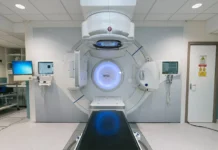Millennium Laboratories has commenced clinical outcomes study of its pharmacogenetic test.
As part of the study, Millennium will evaluate the relationship between CYP genotype and clinical outcomes that include level of analgesia, functional status and clinically significant opioid-related adverse events.
The study will also seek to assess the benefit to prescribers of pharmacogenetic information arising from Millennium PGT and characterize any corresponding changes in prescribing patterns.
Millennium Laboratories president Howard Appel said the company’s commitment to furthering the science and field of pain management includes providing research that supports best practices.
“To that end, this study will seek to expand and improve an understanding of how genetic variability affects response to prescribed medications to help improve medication choices and efficacy, and minimize side effects – potentially resulting in improved patient care,” Appel added.
A Connecticut-based pain specialist Michael Brennan said Pharmacogenetic testing can provide valuable information through the detection of genetic variations in enzymes associated with the metabolism of medications commonly prescribed to patients.
”Utilized in combination with urine drug testing, it offers significant potential to improve the safety and efficacy of drug treatment and reduce adverse effects among certain patients,” Brennan added.
“Ongoing research such as the major study announced today by Millennium will be critical in helping to facilitate a better understanding of the important role this new tool can play in pain management.”
The study will enroll 1,250 subjects in more than 30 practice sites in US.



















